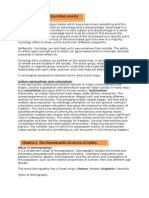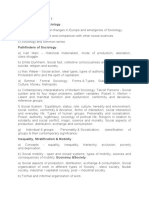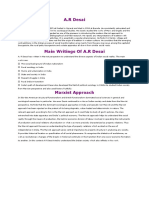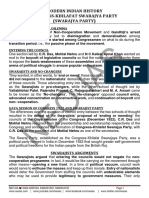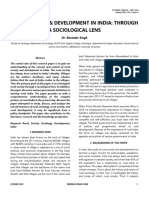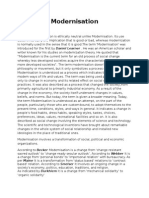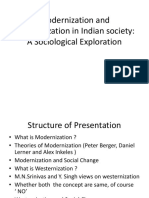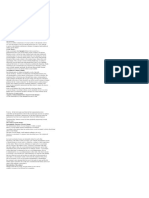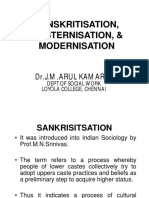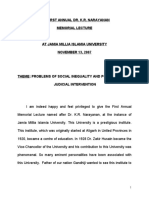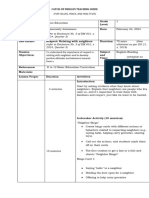0% found this document useful (0 votes)
576 views14 pagesSanskritisation Westernisation and Modernization
This document discusses the concepts of Sanskritisation, Westernisation, and modernisation in Indian society. It defines Sanskritisation as lower castes adopting practices and beliefs of upper castes to improve social status. Westernisation refers to the social and cultural changes in India due to 150 years of British rule, including new technologies, institutions, and ideologies. Modernisation is described as the process of transitioning to a modern, industrialized society and economy through industrialization, education, urbanization, and other changes.
Uploaded by
Pittala DaamoderCopyright
© © All Rights Reserved
We take content rights seriously. If you suspect this is your content, claim it here.
Available Formats
Download as PDF, TXT or read online on Scribd
0% found this document useful (0 votes)
576 views14 pagesSanskritisation Westernisation and Modernization
This document discusses the concepts of Sanskritisation, Westernisation, and modernisation in Indian society. It defines Sanskritisation as lower castes adopting practices and beliefs of upper castes to improve social status. Westernisation refers to the social and cultural changes in India due to 150 years of British rule, including new technologies, institutions, and ideologies. Modernisation is described as the process of transitioning to a modern, industrialized society and economy through industrialization, education, urbanization, and other changes.
Uploaded by
Pittala DaamoderCopyright
© © All Rights Reserved
We take content rights seriously. If you suspect this is your content, claim it here.
Available Formats
Download as PDF, TXT or read online on Scribd
/ 14

